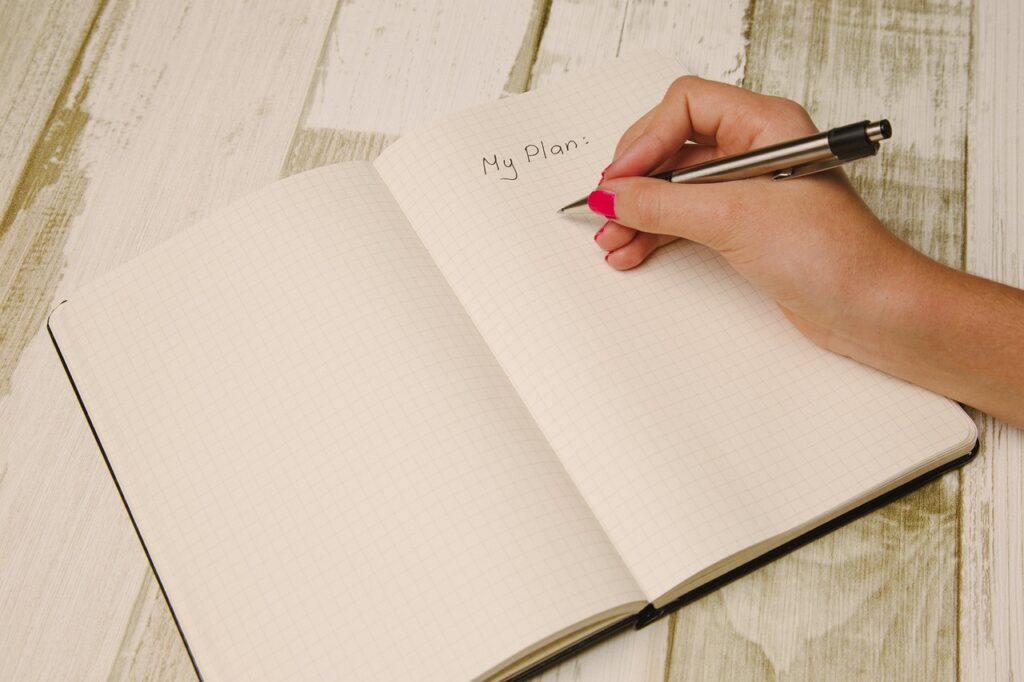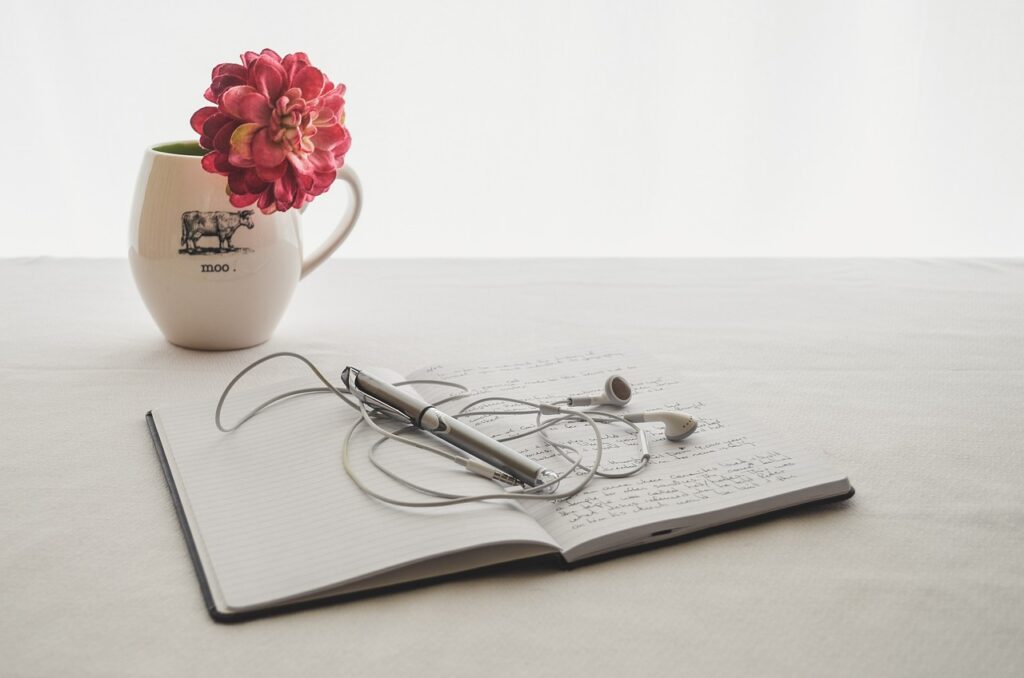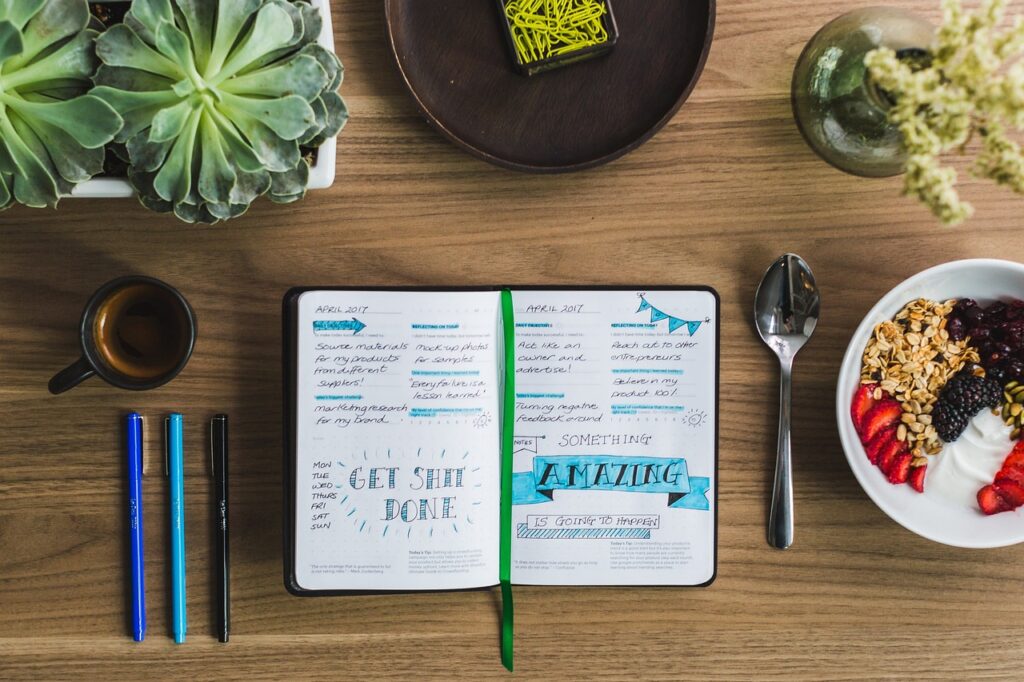Journaling for Mental Health: A Fresh Start for 2024
I’ve tried journaling several times over the course of the past five or so years, and it’s never once stuck with me. My hand would hurt, or I would have some excuse not to sit down with myself because thinking about my trauma felt worse at the time than working through it. I constantly made excuses to myself, and never forgave myself for quitting.
But, there were times when I used to write in journals daily, and when I did, my mind felt more clear than ever before. I used to write in an online journal that I basically dubbed my best friend, and even gave a name to (I was 12 or so, don’t judge). Journaling helped me walk through my day and reflect upon the highs and the lows.
Journaling is a great tool for mental well-being, especially when you are able to stick to it consistently. Let’s dive into the power of journaling in relation to impacting your mental health and how you can get started to journal effectively.

The Therapeutic Power of Journaling
There are numerous psychological benefits of journaling. Here are just a few of the many!
- Emotional Expression and Release: Journaling provides a safe and private space to express and release emotions. Writing down thoughts and feelings can serve as a healthy outlet for pent-up emotions, reducing emotional burden.
- Stress Reduction and Relaxation: Regular journaling has been linked to reduced stress levels. The act of putting thoughts on paper can help individuals process stressors, identify triggers, and develop coping mechanisms, leading to a calmer state of mind.
- Increased Self-Awareness and Mindfulness: Journaling encourages self-reflection, fostering a deeper understanding of one’s thoughts, behaviors, and emotions. This increased self-awareness can contribute to mindfulness, letting us live in the present moment and make conscious choices.
- Problem-Solving and Cognitive Processing: Writing down challenges and concerns can aid in cognitive processing. Journaling allows us to think through problems, consider potential solutions, and gain perspective on issues, facilitating effective problem-solving.
- Tracking Patterns and Progress: By consistently journaling, individuals can track patterns in their thoughts and behaviors. This helps in identifying trends, triggers, and areas of improvement, facilitating personal growth and development. I loved looking back at what kinds of patterns I wrote about- sometimes having a tracker for certain habits can be a helpful record.
- Enhanced Communication Skills: Journaling provides an opportunity to practice articulating thoughts and feelings, which can contribute to improved communication skills. This may extend to interpersonal relationships, fostering better understanding and empathy.
- Cathartic and Therapeutic Effects: The act of writing itself can be cathartic and therapeutic. It allows us to externalize their thoughts, creating a sense of distance from overwhelming emotions and introducing a more objective perspective.
- Personal Empowerment: Journaling empowers individuals to take an active role in their mental health. It provides a sense of control over our narrative, helping to build resilience and a positive mindset.
Getting Started: Tips for effective Journaling
Journaling starts with choosing the right journal for you – and no, it’s not just about picking the pretty one. Consider the purpose of your journaling. Are you seeking a space for personal reflection, goal-setting, or creative expression? Choose a journal that aligns with your intended use, whether it be a dotted notebook, or a mini narrow lined notebook. Size and format make a difference. Aesthetics can make a difference in your overall experience, not just enhancing it, but also making you more inclined to use it consistently.
Take into consideration the type of writing you want to participate in as well. Sometimes, free-form expression can let your thoughts flow organically, providing an outlet for creative expression. Other times, prompts and guided entries can help provide structure and reveal insights about your mental wellbeing that you couldn’t have gotten out of just free writing.
I would also recommend setting aside a dedicated time for journaling every day or each week. Consistency is key with journaling – when I was journaling consistently, I felt so much more put together than when I used to journal once in a moon. Be flexible with integrating journaling into your routine as it can also be an emotionally heavy activity, depending on what you’re writing about. Start small- maybe just a few sentences- and let go of any need for perfection. Your journal is your journal, no one else’s. It doesn’t have to be anything near perfect. If you miss a day, view it as a short break, not a failure. Reflect on what might have led to you missing the day the next time you journal and use it as an opportunity to grow.

Prompts for Journaling
If you’re looking for more of a guided experience, we’ve got you. Here are a few journaling prompts you can use to kick start your journaling experience.
- Reflect on three things you are grateful for today. How did they positively impact your day?
- Describe your current emotions. Are there specific triggers or events influencing your mood?
- List three accomplishments, no matter how small. How do they contribute to your overall goals?
- Identify a current challenge. Brainstorm potential solutions or coping mechanisms.
- Recall a moment of mindfulness today. How did it make you feel, and how can you incorporate more mindfulness into your routine?
- Write about a recent realization or insight into yourself. How can this knowledge guide your personal growth?
- Explore a hobby or passion. What do you love about it, and how can you incorporate it more into your life?
- Write down three positive affirmations. Reflect on how they influence your mindset.
- Consider a significant relationship. What positive aspects can you appreciate, and how can you enhance communication?
- Reflect on the connection between your mental and physical well-being. How can you nurture both aspects?
- What emotions do you often suppress, and how can you express them in a healthy way?
- Identify a situation where you need to set boundaries. How can you communicate your needs assertively and respectfully?
- Envision your life five years from now. What goals have you achieved, and how has your mindset evolved?
- Write a compassionate letter to yourself during a challenging time. What advice would you offer to your past self?
- Identify a fear that holds you back. What steps can you take to confront and overcome this fear?
- Reflect on a day without screens. How did it impact your mental well-being and sense of presence?
- List three items on your bucket list. What steps can you take to turn one of these dreams into a reality?
- Identify a belief that limits your potential. Challenge it by exploring evidence to the contrary.
- Describe a memorable experience in nature. How can you incorporate more outdoor activities into your routine?
- Recall a cherished childhood memory. What aspects of that experience can you bring into your adult life?
- Write about a recent moment of pure joy. What elements made this moment special, and how can you recreate it?
- Choose a person who inspires you. What qualities do you admire, and how can you incorporate them into your life?
- Reflect on your identity beyond roles (job, relationships). Who are you at your core, and how does this influence your decisions?
- Assess your media consumption habits. How do the media you consume impact your mood and perceptions?
- List three personal strengths. How can you leverage these strengths to overcome challenges?
- Consider a recent change in your life. How did you adapt, and what positive aspects emerged from the change?
- Close your eyes and visualize your ideal day. Describe it in detail, focusing on the emotions and experiences.

Embracing Creativity in Journaling
Your journal offers a canvas that’s for more than just words- art is a great therapeutic activity as well. Incorporate artistic elements into your journaling routine through doodle therapy, mindmaps, collages, and object stamping. You can also try out creating a vision board in your journal or scrapbooking memories. One of my favorite things is creating a mood map where I plot out my mood for every day of the month using different colors. This will give you a more visual look at your mental wellbeing for the month, and is just a fun little ritual to add to enhance your journaling experience.
Cultivating a Consistent Journaling Habit
It’s 2024, so if mental health is not on the forefront of your mind, it’s time to make it a priority. And, journaling is a great way to start. Start with small, achievable goals, create a welcoming space, and explore different formats.
So, how do you maintain a regular journaling practice? Here are our tips!
- Set Realistic Goals: Begin with achievable goals for frequency and length of entries. Gradually increase as the habit solidifies.
- Create a Dedicated Space: Designate a specific time and place for journaling to signal your brain that it’s time to focus on this activity.
- Use Prompts: Overcome writer’s block by utilizing prompts that spark reflection and self-discovery. Maybe refer back here for the prompts we provided above.
- Experiment with Formats: Try various journaling methods, such as bullet points, free writing, or structured prompts, to find what works best for you.
- Make it a Routine: Incorporate journaling into an existing routine, making it a natural and consistent part of your day.
Consistency with journaling can be so difficult, but if you’re identifying challenges to sticking with your routine and forgiving yourself for the times you’ve missed it, you can start celebrating your progress, no matter how small. Regardless of what you end up doing, journaling or even writing down a sentence a day, can be a wonderful way to reflect and use your past to spring forth and grow into the future.

